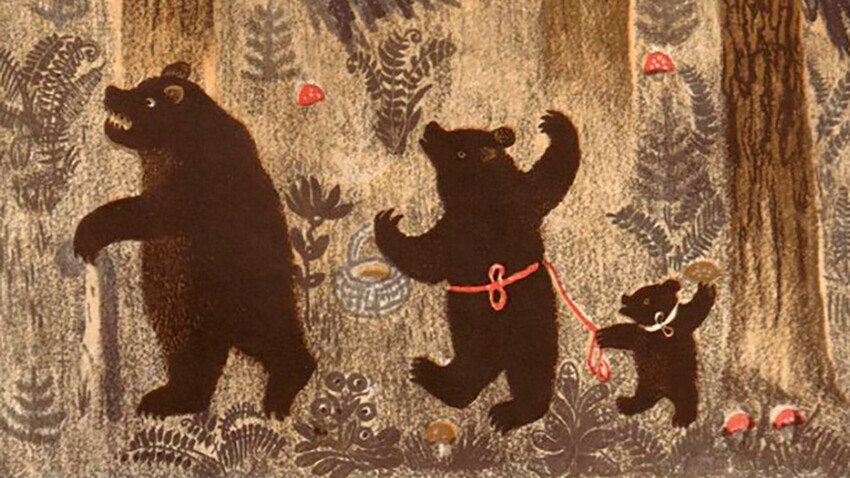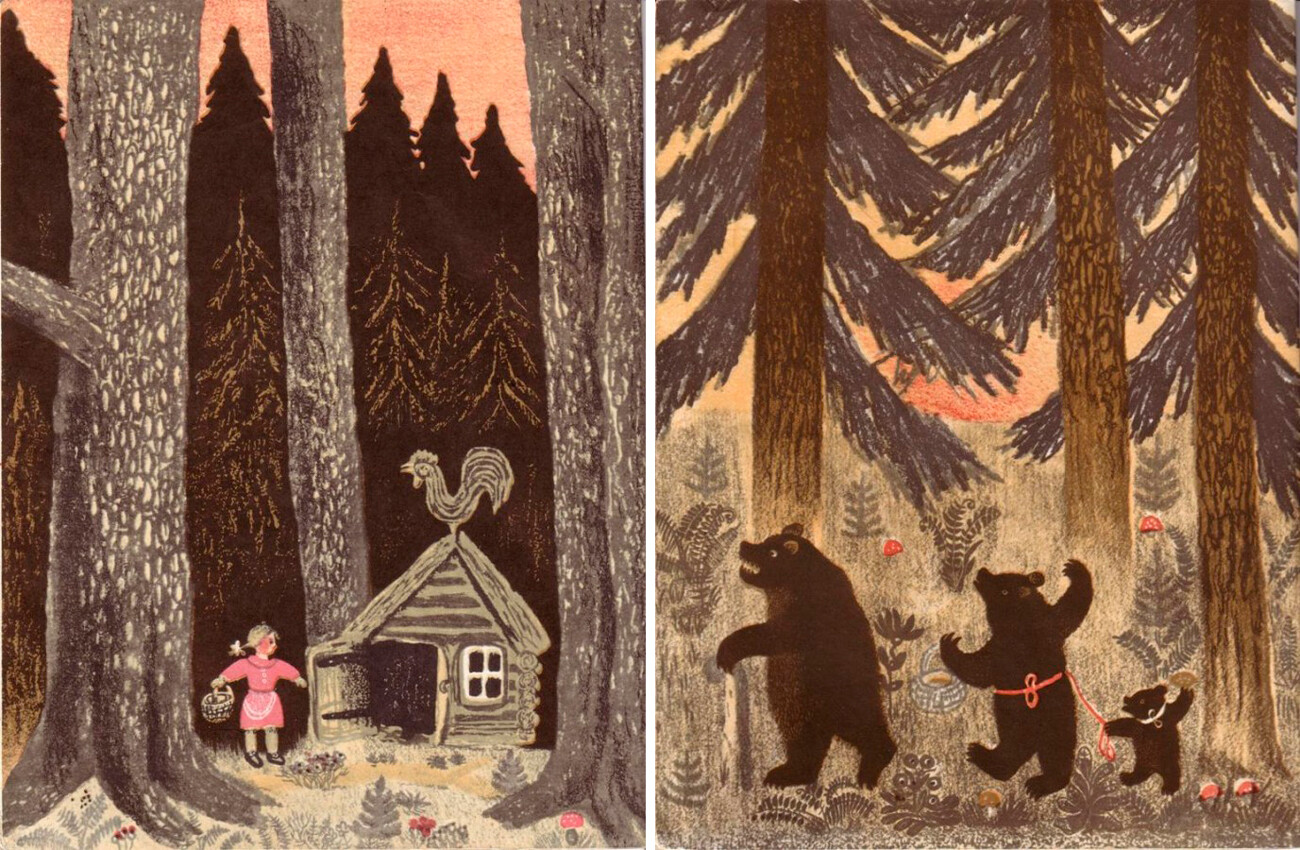
Illustrations to the book 'Three Bears' by Leo Tolstoy, 1935
Yury VasnetsovLeo Tolstoy was author not only of giant novels such as ‘War and Peace’ and ‘Anna Karenina’, but also wrote tales for children and even an ABC book. In 1875, he made his own version of the old English fairy tale ‘Story of the Three Bears’ in Russian. His ‘Three Bears’ became so popular that it actually ended up being considered a Russian folk tale…
So the classic English plot became familiar to every Russian kid. Lost in a forest, a girl enters the home of three bears while they are away. She eats food from each of their three plates, she sits on each of their chairs and, finally, she lies on each of their three beds – and falls asleep in the smallest. The bears come home and notice that someone has eaten their food, sat on their chairs and laid on their beds and finally they find the sleeping girl! She wakes up and, frightened, jumps out of the window. And the bears fail in catching her.

There were several Russian versions of the original English tale. Firstly, the bears were three bachelors and, only later, became a family of three. Tolstoy gave each of them names: father Mikhail Ivanych, mother Nastasya Petrovna and son Mishutka (a name which is actually ‘little bear’ in Russian). They all talk with different voices and have specific characters.
In fact, the girl in the very first version of the English tale was actually a little old woman. And, only later did she transform into the young girl named Goldilocks. The little girl in Tolstoy’s story didn’t have any specific name. But, she later informally became known as Masha.
Dear readers,
Our website and social media accounts are under threat of being restricted or banned, due to the current circumstances. So, to keep up with our latest content, simply do the following:
If using any of Russia Beyond's content, partly or in full, always provide an active hyperlink to the original material.
Subscribe
to our newsletter!
Get the week's best stories straight to your inbox